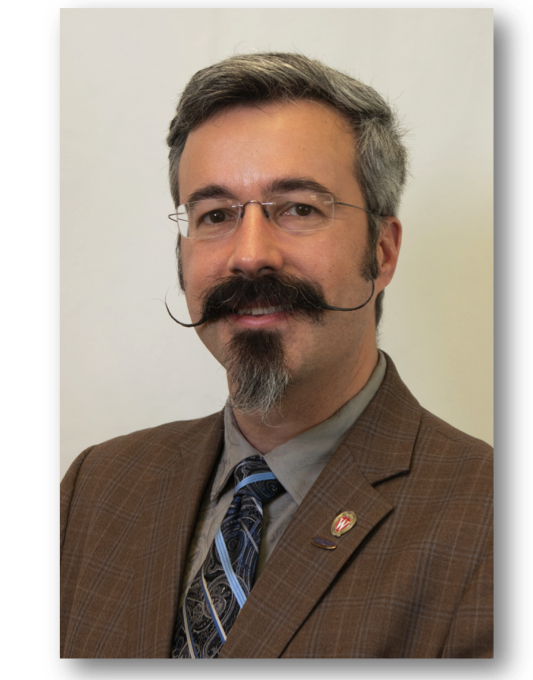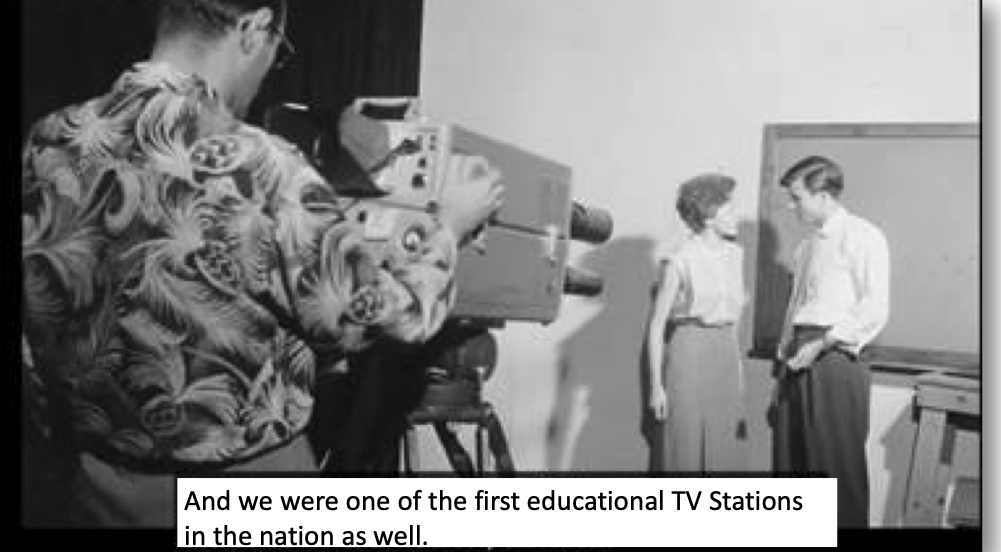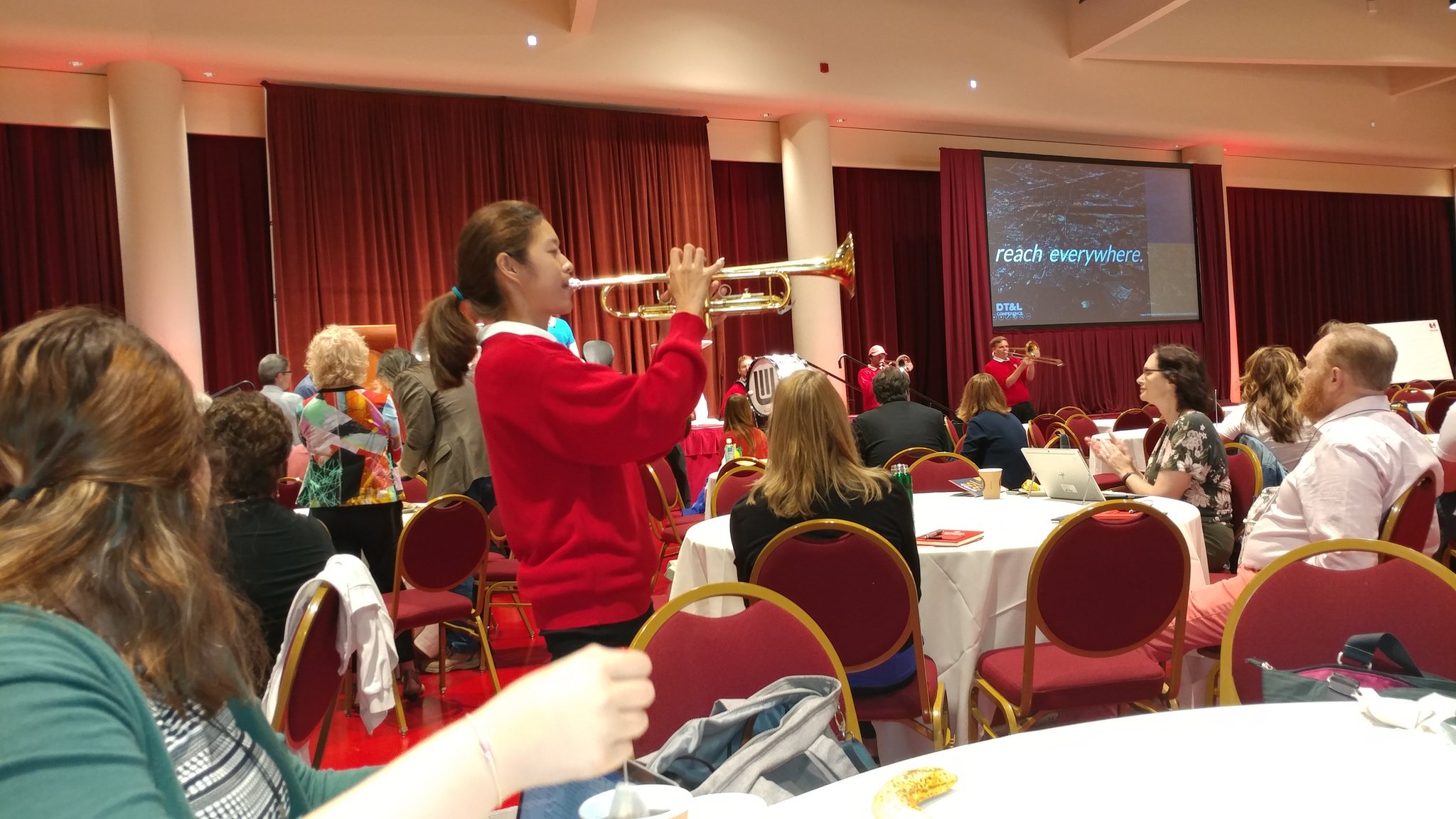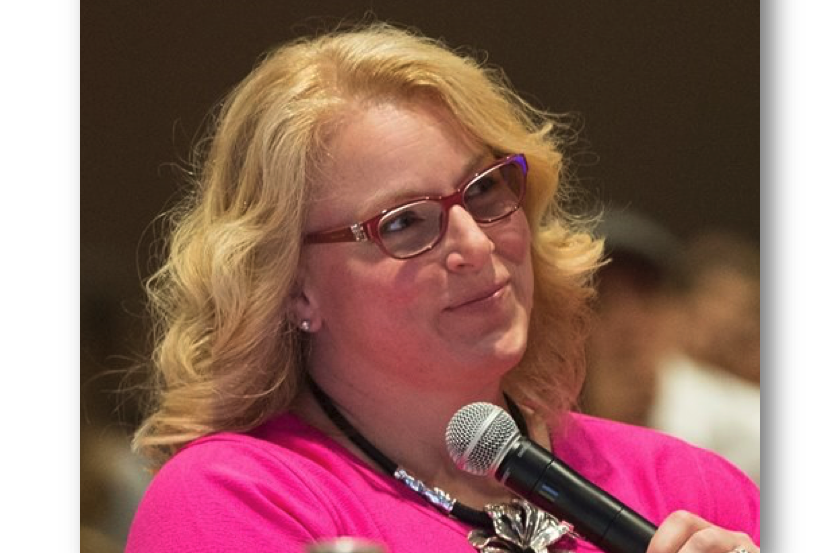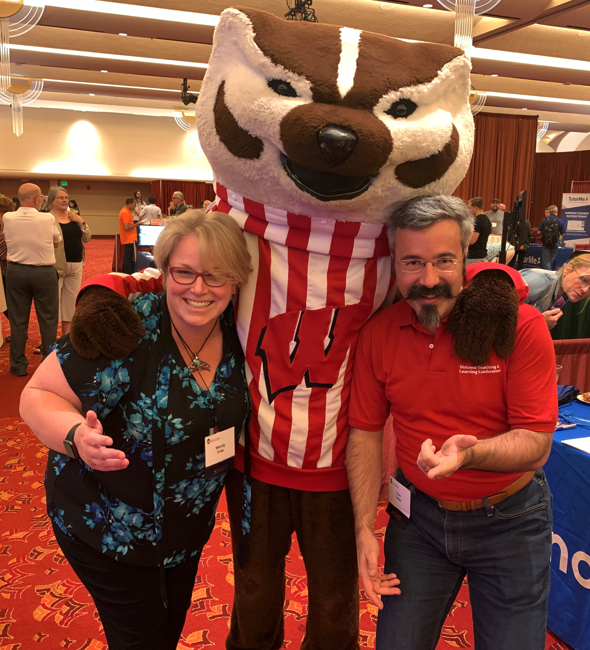Exclusive Interview with Dr. Thomas J. Tobin, University of Wisconsin-Madison
Dr. Saba: You have a wide range of experience in educational technology, program management and distance education. What attracted you to this field?
Dr. Tobin: I started out as an English literature PhD, teaching composition and nineteenth-century literature courses. While I was working on my doctorate, I was hired by a two year college in Pennsylvania to help them to create fully online degrees and programs. This was back in 1998, so I suspect they hired me as a Coordinator if Instructional Technology because I was a bibliographer and could code HTML. I helped the college to adopt Blackboard version 1.0 (yes, I’ve earned all the gray hair on my head). Along the way, I worked with a business-department colleague who wanted to teach online, but who had gone blind in his 40s due to complications from undiagnosed and untreated diabetes. After a lot of conversation, customization, and help from graduate student workers from a local university, we got him to teach online—until, that is, we realized we were violating student privacy laws.
Although we had to stop that experiment, it caused me to take a hard look around at who else we might not be serving well, or perhaps at all. I started to notice students with family and work responsibilities, people with military deployment, learners with disability barriers, and all kinds of people who were, for one reason or another, unable to come to campus during our usual Monday-through-Friday 10:00a – 3:00p offerings. That started me down the road I am on today, twenty years later, advocating for the educational rights of people across the ability and access spectrum. I’m proud that the University of Wisconsin-Madison is helping to increase access to learning for everyone through our professional-development courses, badges, certificates, and conference events.
Dr. Tobin: The DT&L conference started in the 1980s, when distance education was chiefly concerned with negating the effect of geographic dispersal. When learners weren’t in the same place as educators, they could watch lectures on public-access television, receive and return assessments in the mail, and explore options for demonstrating their learning through audio cassettes and videotapes. I taught an educational-methods course in 1998 where my students wrote a traditional end-of-course research paper or recorded their work as spoken audio or video reports—and they mailed me the cassettes.
These days, though, distance education is no longer about conquering the map. Remote learners are common in higher education today, and the service maps for all but the very largest colleges and universities are intensely local: most of us serve learners who live within 5-40 miles of campus. So why are distance-education programs still going strong?
For most learners, their challenge is no longer distance, but time. Having even 20 more minutes for study in people’s busy days can be the difference between struggling with course work and keeping up. The DT&L conference has kept up with this shift, focusing especially in recent years on issues of access for learners whom colleges and universities have historically served poorly, and even not at all. We are proud that our conference provides concrete, practical, cutting-edge ways for faculty members, designers, and campus leaders to expand their reach to new learners, help more students to stick with their studies, and support lifelong learning across the sometime-silos of our institutions.
The DT&L conference started in the 1980s, when distance education was chiefly concerned with negating the effect of geographic dispersal.
Dr. Saba: What is your vision for the future of the conference?
Dr. Tobin: Our director, Wendy Fritz, has built on the strengths of the conference over the years in order to make the DT&L conference echo the evolution of the field itself. As technological advances allow more people to take part in higher education at more entry points, Wendy’s vision is for our conference to focus on three key areas of the interactions we are all designing for our learners: we want to help everyone to be more high-tech, more high-touch, and more high-integrity.
The high-tech part of the conference has a long history: if you want to know what your campus leaders are going to be asking you about in two or three years, come to the DT&L conference, where we invite the thought innovators, radical experimenters, and leading-edge vendors who are already doing the things that everyone else will adopt later on. A good example is making engaging video content. We were showing people how to do it back in 1998, and we’re still on the forefront of the issue, with sessions on how to move away from big, expensive professional productions and into the self-made, on-the-fly, need-generated content that resonates with how humans actually search for and consume information for micro-learning sessions.
The DT&L conference isn’t just about technology, though. The “T” stands for “teaching,” and we never lose sight of the fact that technology-mediated learning interactions are all about making human connections between instructors and learners.
The DT&L conference isn’t just about technology, though. The “T” stands for “teaching,” and we never lose sight of the fact that technology-mediated learning interactions are all about making human connections between instructors and learners. Toward that end, the conference brings in expert voices in fields related to distance education— prominent theorists and practitioners who share their research and best practices for how to ensure that the human connections are the primary drivers of all of our interactions that happen at a distance or asynchronously. A good example is our recent keynote from Bryan Alexander. Bryan is a higher-education futurist, and his talk at the 2019 DT&L conference focused on the challenges and gaps that distance education will be poised to address as we head toward 2050 and beyond.
The final piece of the DT&L conference is a commitment to ethical and just practices. We are proud that our conference reflects our field and our society. The conference strives to include the voices of people from diverse backgrounds, ideas from practitioners at all stages of their careers, and ideas from colleagues who represent a wide array of viewpoints and approaches. The invited talks over the past three years have included focus areas on learners with varying ability profiles, serving students across the economic spectrum, welcoming veterans and active-duty military learners, and making welcoming spaces for women and people of color in the field, among many more topics.
Our overall vision is to champion greater inclusivity, greater access, and greater collaboration among colleges and universities. The best part about the DT&L conference is that it is not driven by a product or an organization. It’s “by us, for us,” put on by people who are practicing distance educators, and supported by a network of colleagues and advocates who all want to increase access to education across learners’ lifetimes. On paper, our institutions might be competing for funds, people, and resources: distance education is, conversely, a “team sport” where our collaborations define our success.
Dr. Saba: UW-Madison’s Distance Teaching & Learning (DT&L) program helps higher-education professionals to enhance and strengthen their skills. What are the highlights of some of its current offerings?
Dr. Tobin: The DT&L conference is just a part of the University of Wisconsin-Madison’s efforts to spread good practices and strengthen the expertise of the entire distance-education field. Our Distance Teaching & Learning (DT&L) professional development programs offer courses, badges, and certificates in practice areas for online instructors, designers, and administrators, including teaching techniques, course design, quality assessment, and program/curriculum design and oversight.
We are pleased to announce that our curriculum is expanding, as well. In 2020, we will start offering new shorter-format courses that cover just-in-time, use-them-tomorrow skills for distance-education practitioners. Starting in October 2019, watch http://bit.ly/UWDTL/ for details.
Exclusive Interview with Dr. Michal J. Tobin From the University of Wisconsin-Madison
Dr. Saba: Planning for the upcoming conference in 2020 is already underway. What can attendees expect next year?
Dr. Tobin: DT&L 2020 will be a splendid event. We are expanding the number of sessions, streamlining the subject-related tracks to allow participants to follow their interest areas more easily, and making the virtual-attendee option more robust, as well. We are also looking to represent the entire field of distance education, so if you are reading this and thinking about sharing your expertise, good practices, and ideas, we want to hear from you. The call for proposals opens in late Fall every year, and we would love to hear about your work. We hope to see readers of Distance-Educator.com in sunny, beautiful, fun Madison, Wisconsin August 4-6, 2020. Watch dtlconference.wisc.edu for details. The web site shows highlights from past years, too, so check out the conference and the professional-development offerings from the University of Wisconsin-Madison.
Dr. Saba: Thank you for the valuable information.
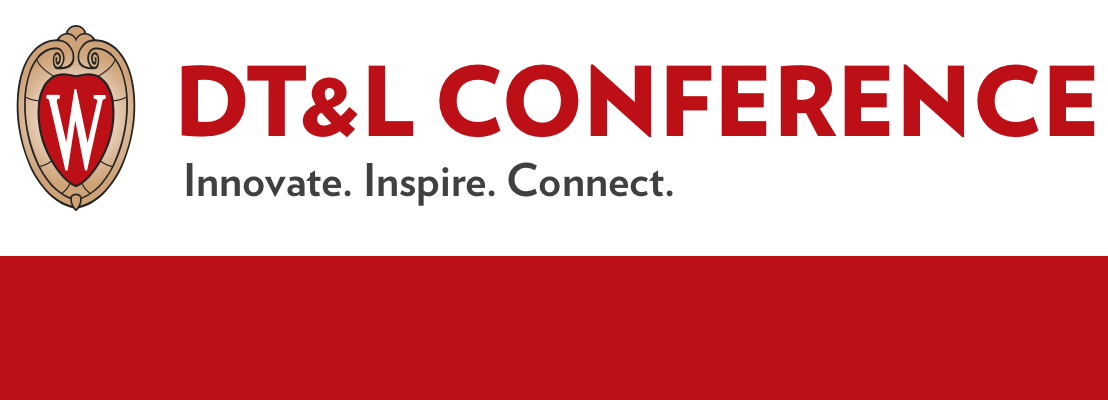 DT&L Conference provides you with a transformative professional development experience at an affordable price. This conference emphasizes evidence-based practice, educational innovation, and practical applications of theories and research findings in the field of distance education and online learning. There are also many opportunities for you to network, share, and collaborate with peers from around the world. You will head home with new skills, fresh knowledge, and the motivation to apply what you’ve learned.
DT&L Conference provides you with a transformative professional development experience at an affordable price. This conference emphasizes evidence-based practice, educational innovation, and practical applications of theories and research findings in the field of distance education and online learning. There are also many opportunities for you to network, share, and collaborate with peers from around the world. You will head home with new skills, fresh knowledge, and the motivation to apply what you’ve learned.
